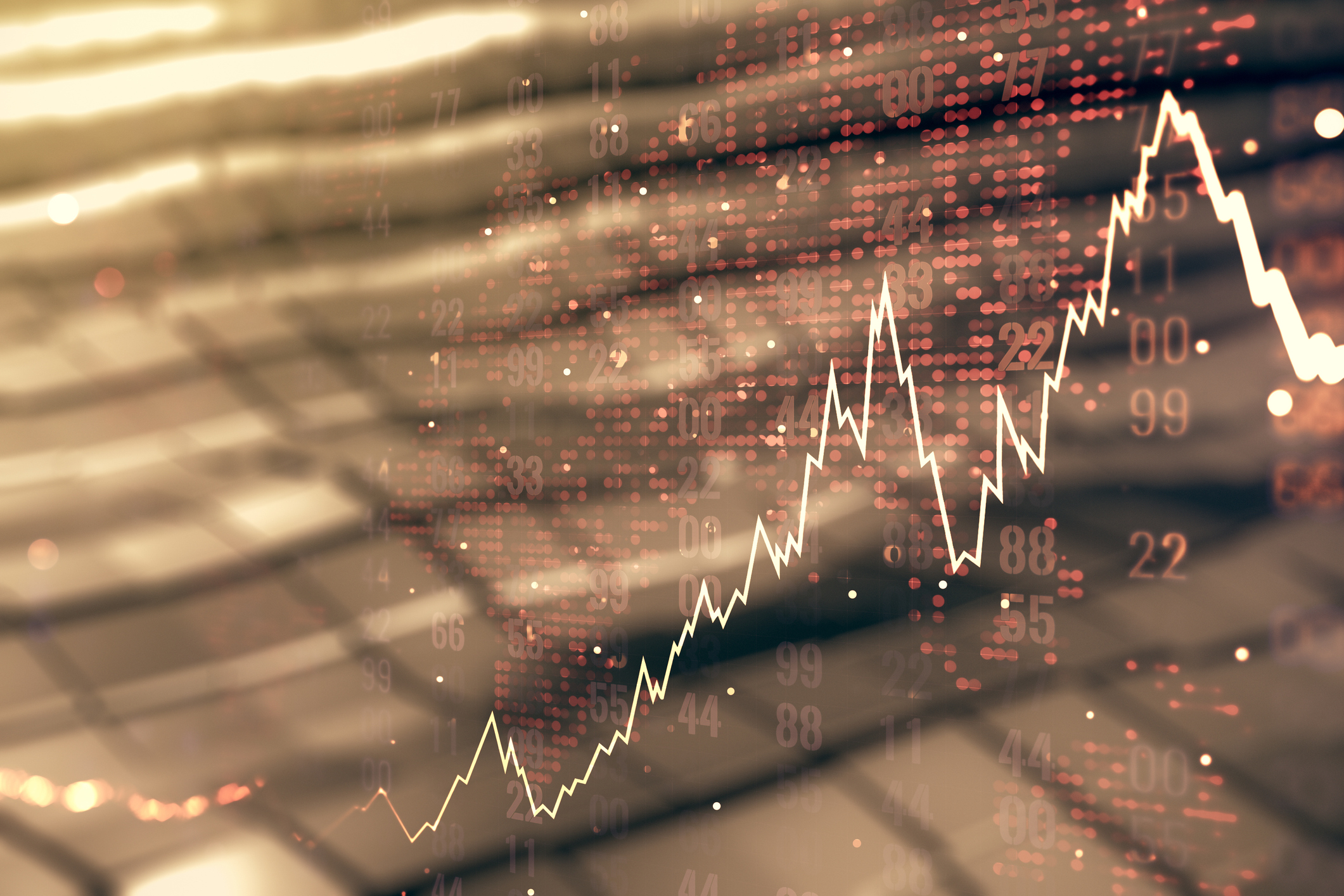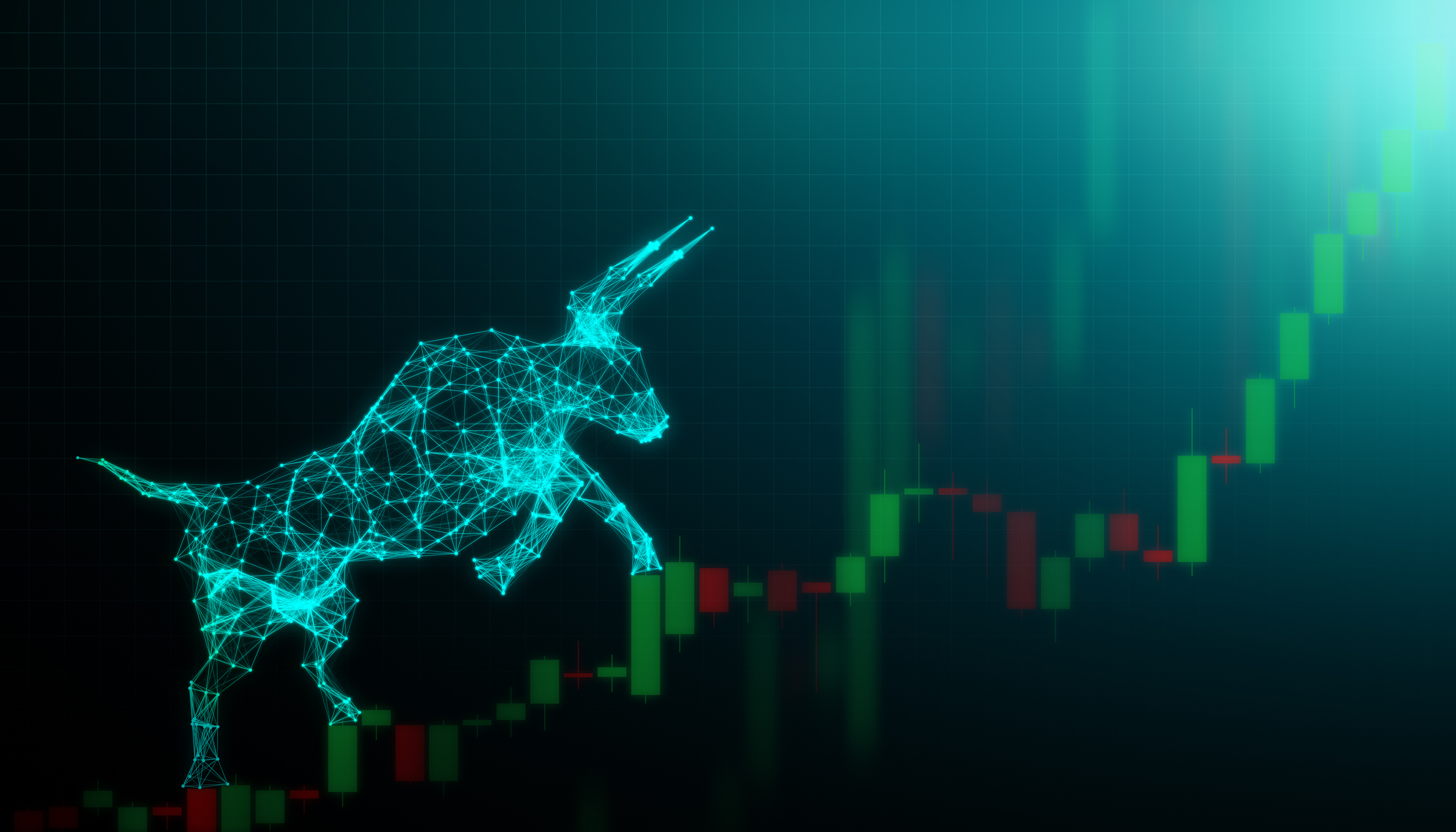5 Sin Stocks for Dividend Investors
Much has been made of the rise of socially conscious investing – investing according to ethical or social principles.


Profit and prosper with the best of Kiplinger's advice on investing, taxes, retirement, personal finance and much more. Delivered daily. Enter your email in the box and click Sign Me Up.
You are now subscribed
Your newsletter sign-up was successful
Want to add more newsletters?

Delivered daily
Kiplinger Today
Profit and prosper with the best of Kiplinger's advice on investing, taxes, retirement, personal finance and much more delivered daily. Smart money moves start here.

Sent five days a week
Kiplinger A Step Ahead
Get practical help to make better financial decisions in your everyday life, from spending to savings on top deals.

Delivered daily
Kiplinger Closing Bell
Get today's biggest financial and investing headlines delivered to your inbox every day the U.S. stock market is open.

Sent twice a week
Kiplinger Adviser Intel
Financial pros across the country share best practices and fresh tactics to preserve and grow your wealth.

Delivered weekly
Kiplinger Tax Tips
Trim your federal and state tax bills with practical tax-planning and tax-cutting strategies.

Sent twice a week
Kiplinger Retirement Tips
Your twice-a-week guide to planning and enjoying a financially secure and richly rewarding retirement

Sent bimonthly.
Kiplinger Adviser Angle
Insights for advisers, wealth managers and other financial professionals.

Sent twice a week
Kiplinger Investing Weekly
Your twice-a-week roundup of promising stocks, funds, companies and industries you should consider, ones you should avoid, and why.

Sent weekly for six weeks
Kiplinger Invest for Retirement
Your step-by-step six-part series on how to invest for retirement, from devising a successful strategy to exactly which investments to choose.
Much has been made of the rise of socially conscious investing – investing according to ethical or social principles. And for good reason. One out of every six dollars managed professionally in the U.S. today is invested using a strategy that considers social good as well as financial return.
But there is plenty of money to be made in so-called sin stocks, too. These shares are issued by companies with significant revenues from tobacco, alcohol or gambling. In some cases, what makes them “sinful” also makes them a good choice for investors. Tobacco companies, for instance, have a solid base of dependent, brand-loyal customers who buy the product regardless of economic conditions. These five stocks should log decent price appreciation over the next three years. But even if share prices stall, they should still pay off—all of the companies are replete with cash and boast a record of increasing dividends.
Stocks are listed alphabetically. Share prices and other data are as of December 21. Price-earnings ratios are based on estimated year-ahead earnings from analysts tracked by Zacks Investment Research.

Altria
- Symbol: MO
- Share price: $67.27
- Market capitalization: $131.2 billion
- 52-week high/low: $70.15/$56.15
- Estimated 2017 earnings growth: 10%
- Price-earnings ratio: 21
- Dividend yield: 3.6%
- The sin: The parent company of Philip Morris USA, Altria manufactures and sells cigarettes and other tobacco products.
- The story: Tobacco’s decline continues. Analysts at Morningstar expect U.S. cigarette sales to recede by 3% to 4% annually over the next 10 years. So why stick with Altria, which derives 80% of its revenue from cigarette sales? The answer, for income-seeking investors at least, is that the company consistently finds ways to produce huge piles of cash that it divvies among shareholders. Take the company’s longtime stake in SABMiller, which stood at 27% when the brewer recently completed plans to merge with Anheuser-Busch Inbev. The resulting company will be the world’s largest brewer, and Altria will hold a 10.5% stake. Altria will also come away with a $5.3 billion cash windfall from the deal. The firm has already committed some of that cash to boost its share buyback program to $3 billion, up from $1 billion, through the second quarter of 2018. That comes on top of an 8% dividend hike in September, to an annual $2.44 per share. Altria pays out an eye-popping 80% of its net income in the form of dividends, a rate that Morningstar analyst Adam Fleck says will likely continue for the next decade.
- The stock: Altria trades at 21 times estimated year-ahead profits, compared with a P/E of 18 for Standard & Poor’s 500-stock index. That’s expensive, but the stock is bolstered by profits that will grow at a 10% annual clip over the next two years, according to Wall Street analysts’ estimates. Value Line analyst Daniel Henigson projects that the stock will outperform the broad market over the next six to 12 months.

Brown-Forman
- Symbol: BF.B
- Share price: $45.34
- Market capitalization: $16.5 billion
- 52-week high/low: $51.71 /$43.82
- Estimated 2017 earnings growth: 3.4%*
- Price-earnings ratio: 25
- Dividend yield: 1.6%
- The sin: Brown-Forman manufactures distilled spirits, including Jack Daniel’s whiskey, Finlandia vodka and Woodford Reserve bourbon.
- The story: Growing demand for liquor in the U.S. and for American whiskey abroad is good news for the makers of the world’s top-selling liquor brand, Jack Daniel’s. Brown-Forman has expanded Jack’s sales to more than 20 million cases in 2016, up from 13 million in 2009. The firm is also fine-tuning its portfolio of brands to capitalize on faster-growing segments of the liquor market, namely brown and high-end liquor. The company jettisoned underperforming labels Tuaca and Southern Comfort in March and soon after acquired premium Scotch distiller BenRiach. Brown-Forman also invested $50 million in 2015 to develop its own brand of Irish whisky, Slane Castle, slated for release in 2017.
- The stock: Brown-Forman is a “dividend aristocrat,” a moniker earned by S&P 500 companies that have raised dividends for at least 25 consecutive years. November’s hike, a 7% bump in the annual payout to $0.73 a share, was the 33rd in a row for Brown-Forman. The stock currently yields 1.6%, slightly less than the 2.1% average yield of the S&P 500. Trading at 25 times estimated earnings, shares are pricey, but Credit Suisse analyst Laurent Grandet projects that profits will rise by an average of 10% per year over the next two years and that dividends will increase by an average of 8% annually over the same period. He rates the stock a “buy” and says it could reach $52 a share in the next 12 months, up 15% from its recent price.
*reflects calendar year; fiscal year ends April 30.

Las Vegas Sands
- Symbol: LVS
- Share price: $54.52
- Market capitalization: $43.3 billion
- 52-week high/low: $63.38/$34.88
- Estimated 2017 earnings growth: 9.0%
- Price-earnings ratio: 22
- Dividend yield: 5.3%
- The sin: Las Vegas Sands is a developer of casinos in the U.S. and Asia, with the bulk of revenues coming from locations in Singapore and Macau.
- The story: August 2016 marked a turnaround for casinos in Macau, the only area in China where casino gambling is legal. The Asian gambling mecca had seen declines in gaming revenue for more than two years following the Chinese government’s crackdown on “conspicuous spending” and a slowing economy that drove high rollers away from the casinos. But in August, revenues started heading back in the positive direction. The timing could not have been better for Las Vegas Sands, which in September opened the mammoth Parisian Macau casino. With 13,000 rooms, 840 stores and a bevy of entertainment and dining attractions, the venue will likely become a family destination as well as a gambling hot spot, says Value Line analyst Dominic Silva. Morningstar projects overall gambling revenue in Macau to increase gradually through 2018, at which point infrastructure projects aimed at improving traffic flow in and out of the gambling capital will start to accelerate growth.
- The stock: Nothing says “cash” like casinos, and Las Vegas Sands has a history of sharing the wealth. The company generates prodigious free cash flow (cash profits after capital expenditures) and has increased its dividend for five years straight. The current annual payout of $2.88 per share brings the yield to a healthy 5.3%.

Philip Morris International
- Symbol: PM
Share price: $91.31
Market capitalization: $141.7 billion
52-week high/low: $104.20/$84.46
Estimated 2017 earnings growth: 7.1%
Price-earnings ratio: 19
- Dividend yield: 4.6%The sin: Philip Morris International manufactures, sells and distributes cigarettes and other tobacco products outside the U.S. in Europe, Asia, Africa and North America.
- The story: Practically all of Philip Morris’s business is cigarettes, but as cigarette demand declines worldwide due to government bans and health concerns, demand for so-called reduced-risk products is on the rise. Earlier this year, in Japan, Philip Morris released iQOS, a rechargeable smoking device that heats tubes of tobacco. The device is already sold in 20 countries. The company aims to have iQOS, which unlike other e-cigarettes produces a vapor that tastes like tobacco, in 35 countries in 2017. Philip Morris sees electronic smoking substitutes adding $700 million to $1.2 billion in annual earnings by 2020.
- The stock: Philip Morris has upped its dividend every year since 2008, although dividend growth has slowed over the past two years as weakening foreign currencies against the strong U.S. dollar have thinned the company’s earnings. Nevertheless, Philip Morris, like Altria, is committed to returning profits to shareholders, and the stock yields a respectable 4.6%. Despite estimating a 3% drag on earnings due to currency exchange rates, Goldman Sachs sees the stock hitting $109 in the next year—up 19% from its recent price—and rates it a “buy.”

Reynolds American
- Symbol: RAI
- Share price: $55.93
- Market capitalization: $79.7 billion
- 52-week high/low: $56.65/$55.70
- Estimated 2017 earnings growth: 11%
- Price-earnings ratio: 22
- Dividend yield: 3.3%
- The sin: Reynolds is the second-largest tobacco company in the U.S. Brands include Camel, Pall Mall and Winston.
- The story: Reynolds’s shares jumped by 17% in October, when the company received a $47 billion buyout offer from British American Tobacco, which already owns 42% of the company. It remains unclear whether the deal will go through, but Reynolds has been doing fine on its own. The company’s market share of U.S. tobacco sales had fallen to 25% before a 2015 merger with fellow tobacco company Lorillard. The coupling brought market share up to 35% and allowed Reynolds to divest unstable, declining brands and invest more heavily in core brands, such as menthol cigarette label Newport and high-priced Natural American Spirits. The firm estimates cost savings of $800 million a year as a result of the Lorillard merger. Value Line’s Henigson believes the company could realize $100 million to $200 million more in savings annually by streamlining operations, including reducing sales staff.
- The stock: Like rival Altria, Reynolds aims to distribute 80% of net income in the form of dividends. The board declared a 9.5% annual dividend increase in July, just six months after a 17% boost. The firm also announced plans to buy back $2 billion worth of stock by year-end 2018. The stock currently yields 3.3%.
Profit and prosper with the best of Kiplinger's advice on investing, taxes, retirement, personal finance and much more. Delivered daily. Enter your email in the box and click Sign Me Up.

Ryan joined Kiplinger in the fall of 2013. He wrote and fact-checked stories that appeared in Kiplinger's Personal Finance magazine and on Kiplinger.com. He previously interned for the CBS Evening News investigative team and worked as a copy editor and features columnist at the GW Hatchet. He holds a BA in English and creative writing from George Washington University.
-
 Ask the Tax Editor: Federal Income Tax Deductions
Ask the Tax Editor: Federal Income Tax DeductionsAsk the Editor In this week's Ask the Editor Q&A, Joy Taylor answers questions on federal income tax deductions
-
 States With No-Fault Car Insurance Laws (and How No-Fault Car Insurance Works)
States With No-Fault Car Insurance Laws (and How No-Fault Car Insurance Works)A breakdown of the confusing rules around no-fault car insurance in every state where it exists.
-
 7 Frugal Habits to Keep Even When You're Rich
7 Frugal Habits to Keep Even When You're RichSome frugal habits are worth it, no matter what tax bracket you're in.
-
 Dow Adds 646 Points, Hits New Highs: Stock Market Today
Dow Adds 646 Points, Hits New Highs: Stock Market TodayIt was "boom" for the Dow but "bust" for the Nasdaq following a December Fed meeting that was less hawkish than expected.
-
 What Fed Rate Cuts Mean For Fixed-Income Investors
What Fed Rate Cuts Mean For Fixed-Income InvestorsThe Fed's rate-cutting campaign has the fixed-income market set for an encore of Q4 2024.
-
 The Most Tax-Friendly States for Investing in 2025 (Hint: There Are Two)
The Most Tax-Friendly States for Investing in 2025 (Hint: There Are Two)State Taxes Living in one of these places could lower your 2025 investment taxes — especially if you invest in real estate.
-
 The Final Countdown for Retirees with Investment Income
The Final Countdown for Retirees with Investment IncomeRetirement Tax Don’t assume Social Security withholding is enough. Some retirement income may require a quarterly estimated tax payment by the September 15 deadline.
-
 Stock Market Today: Stocks Extend a Quiet Winning Streak
Stock Market Today: Stocks Extend a Quiet Winning StreakThe S&P 500 Index could actually close April with a monthly gain, which would be an extraordinary sign of market resilience.
-
 The 24 Cheapest Places To Retire in the US
The 24 Cheapest Places To Retire in the USWhen you're trying to balance a fixed income with an enjoyable retirement, the cost of living is a crucial factor to consider. Is your city the best?
-
 How Inflation, Deflation and Other 'Flations' Impact Your Stock Portfolio
How Inflation, Deflation and Other 'Flations' Impact Your Stock PortfolioThere are five different types of "flations" that not only impact the economy, but also your investment returns. Here's how to adjust your portfolio for each one.
-
 Why I Still Won't Buy Gold: Glassman
Why I Still Won't Buy Gold: GlassmanOne reason I won't buy gold is because while stocks rise briskly over time – not every month or year, but certainly every decade – gold does not.
